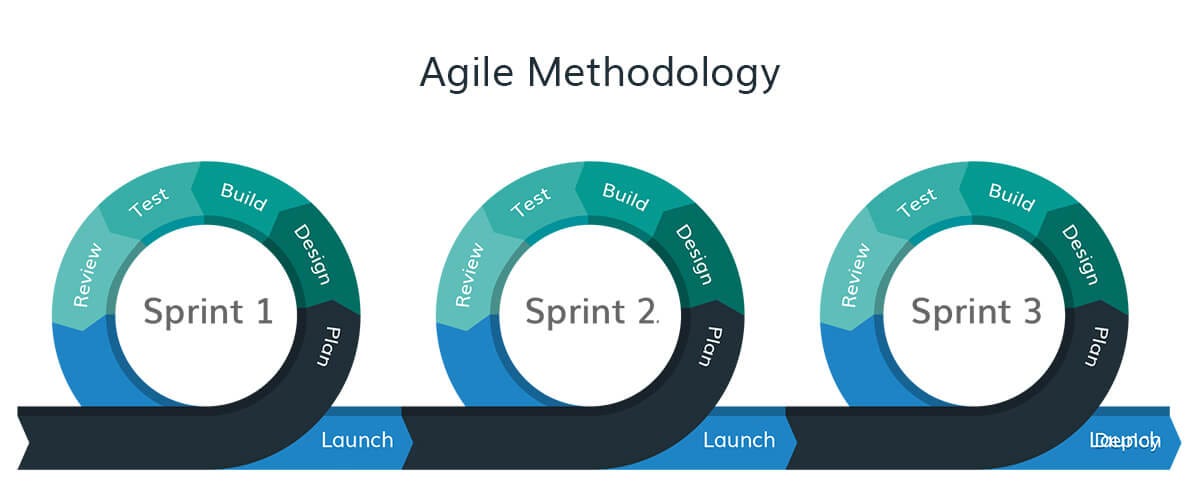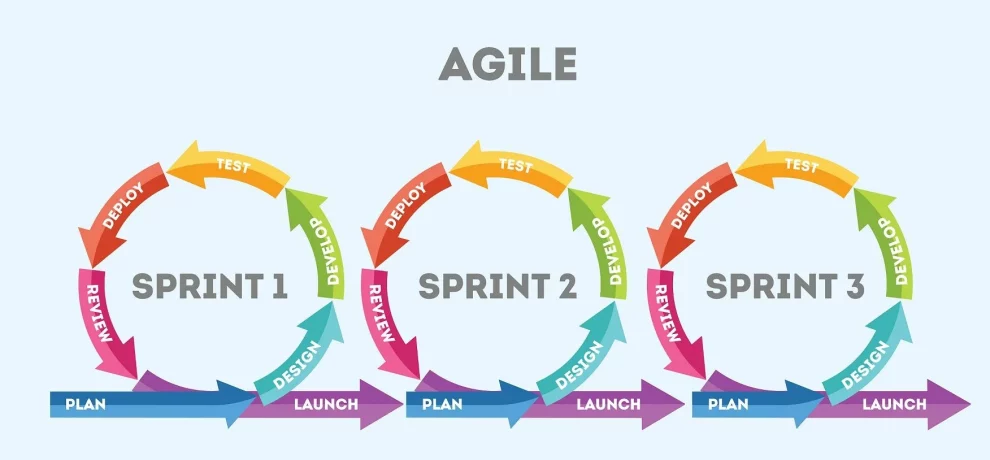Implementing agile methodologies successfully in your software team requires more than just adopting new tools or processes. It’s a cultural shift that demands commitment from everyone involved. Here’s a roadmap to guide you through the process:
Understand Agile Principles
At its core, agile focuses on four key values:
- Individuals and interactions over processes and tools: Foster a collaborative environment where team members communicate openly and work together effectively.
- Working software over comprehensive documentation: Prioritize delivering functional software iteratively instead of focusing solely on extensive documentation.
- Customer collaboration over contract negotiation: Collaborate closely with customers throughout the development process to ensure they’re satisfied with the final product.
- Responding to change over following a plan: Be adaptable and embrace changes arising throughout the project to deliver the best possible outcome.
Choose an Agile Framework
Several agile frameworks exist, each with its own nuances. Popular options include:
- Scrum: Uses short sprints (typically 2-4 weeks) with defined goals and ceremonies (planning, daily stand-ups, reviews, retrospectives).
- Kanban: Employs a visual board to track work progress and focuses on continuous flow and limiting work in progress (WIP).
- Lean: Emphasizes minimizing waste and maximizing value by streamlining processes and focusing on customer needs.
Start Small and Scale Up
Don’t try to transform everything overnight. Begin with a pilot project to experiment with agile practices and assess their effectiveness before scaling up to the entire team.
- Train your team: Provide training and resources to help your team understand agile principles, frameworks, and tools effectively.
- Adapt the framework: Remember, agile is not a one-size-fits-all approach. Tailor the chosen framework to fit your team’s specific needs and context.
Key Practices for Successful Implementation
Here are essential practices to embed into your team’s agile approach:
- Create user stories: Break down project requirements into small, user-centric stories that are easily achievable within iterations.
- Plan sprints effectively: Conduct sprint planning sessions with the team to define goals, tasks, and roles for each iteration.
- Daily stand-up meetings: Hold brief daily meetings for team members to share progress, identify roadblocks, and collaborate.
- Regular reviews and retrospectives: Conduct sprint reviews to gather feedback on work completed and retrospectives to reflect on what went well and what needs improvement.
- Visualize progress: Use tools like Kanban boards or burn-down charts to track progress and identify potential bottlenecks.
- Empower your team: Encourage ownership, decision-making, and experimentation within the team.
- Focus on continuous improvement: View agile as a journey, not a destination. Continuously seek feedback, iterate, and adapt your processes for sustained success.

Additional Tips
Here are some extra tips for ensuring effective agile adoption:
- Celebrate successes: Recognize and reward team achievements to maintain motivation and engagement.
- Communicate effectively: Keep stakeholders informed about project progress and changes through regular communication.
- Be patient: Implementing agile effectively takes time and effort. Be patient, persistent, and adaptable for long-term success.
The Bottom Line
By understanding the core principles, choosing the right framework, and adopting these key practices, you can create an agile environment that fosters collaboration, improves software quality, and delivers value to your customers faster.
Remember, agile is not just a methodology; it’s a mindset that empowers your team to continuously learn, adapt, and deliver exceptional results.
















Add Comment